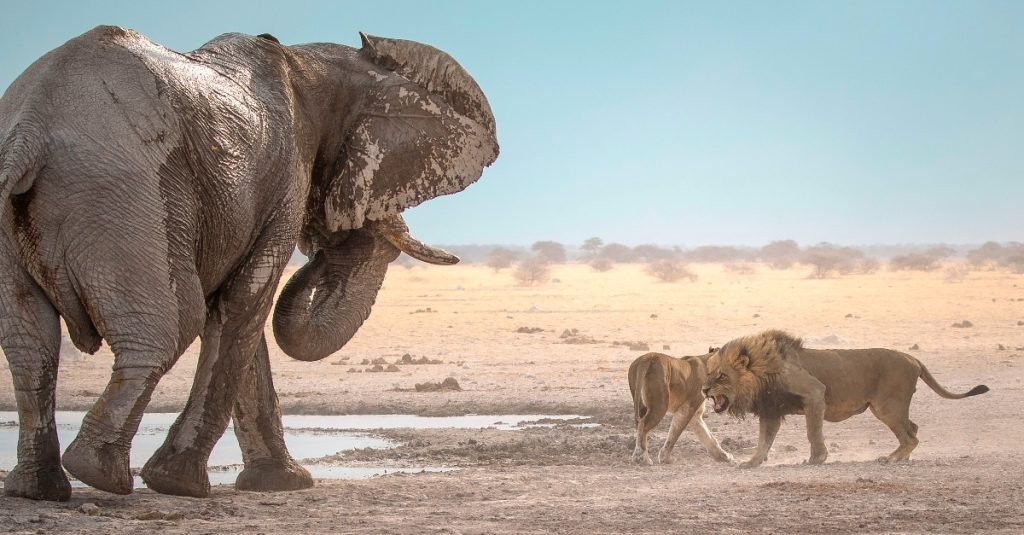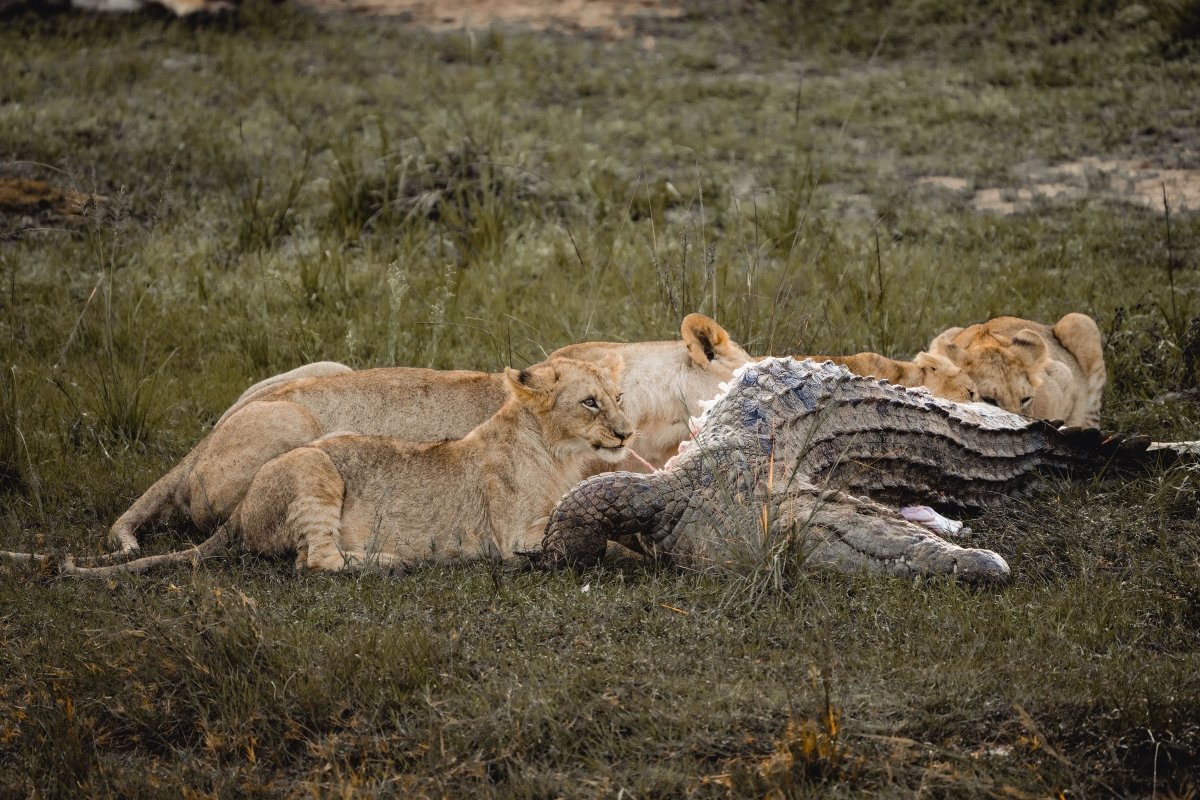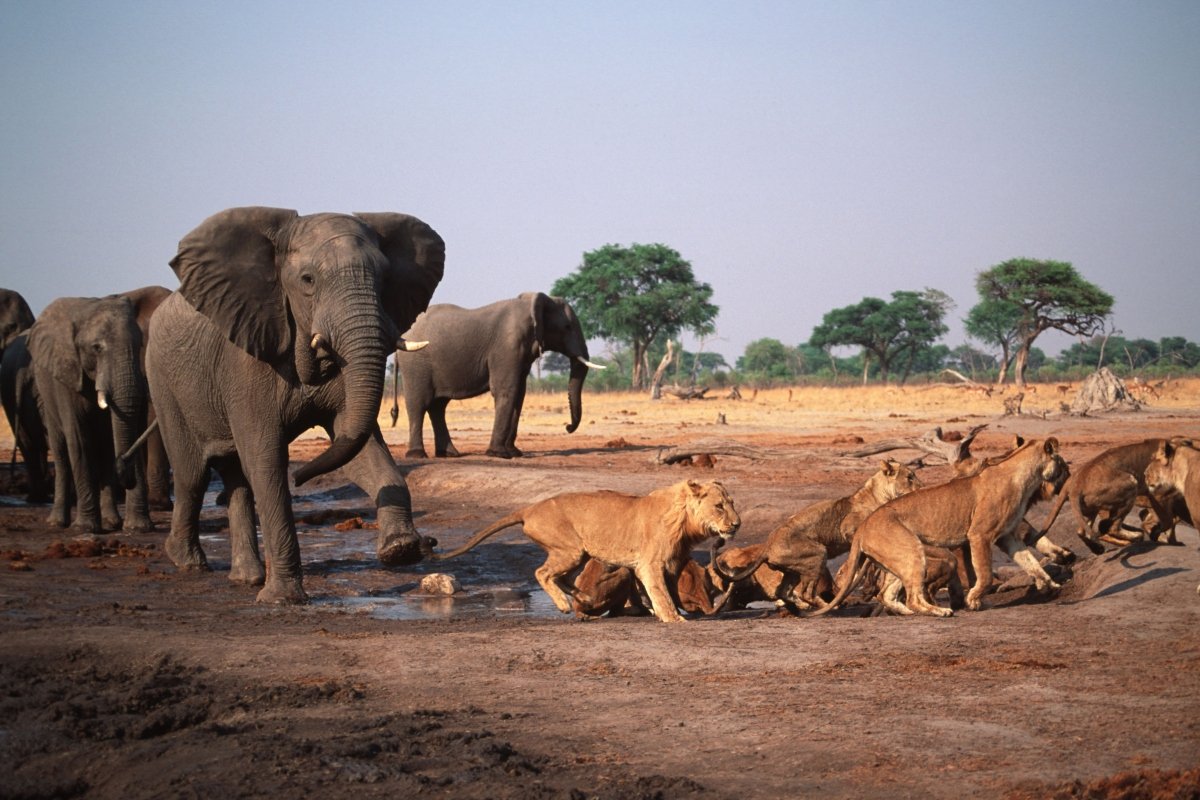It’s Insane How Lions Hunt Crocodiles and Elephants
Published: 2025. 03. 08 • 3 minutes reading

Published: 2025. 03. 08 • 3 minutes reading

When people think of these majestic big cats hunting, they probably imagine a group of lionesses stealthily observing zebras, wildebeests, or even antelopes on the savanna before launching into a quick sprint and sinking their razor-sharp claws into their prey. However, in reality, these big cats' hunting techniques are far more diverse. Two prey species, in particular, stand out as the most unusual. One is the largest land mammal, while the other is a fearsome, scaly predator. In certain parts of Africa, some lions even hunt these extraordinary targets!
However, it is a fact that this is a unique behavioral pattern observed mainly in a few national parks in southern Africa. Each of these parks is part of KAZA (Kavango-Zambezi Transfrontier Conservation Area), the world's second-largest nature and landscape conservation area, spanning the international borders of five southern African countries. Let’s take a look at how lions hunt these unusual prey.
 Crocodile hunting is a dangerous craft
Crocodile hunting is a dangerous craft
Dr. Kristoffer Everatt, a conservation scientist and director of Panthera Canada, points out that during the peak of the dry season in Zimbabwe’s Hwange National Park, elephants have only a few water sources available. As they approach these watering holes, hungry lions lie in wait, ready to ambush the calves. In many cases, the elephants are already weakened by the harsh conditions of the dry season, making them easy prey. So easy, in fact, that observations suggest these big cats attack elephant calves even when there is an abundance of buffalo, zebra, and wildebeest available.
But what’s even more astonishing is that in Matusadona National Park, certain male lions form coalitions and specialize in hunting adult elephants. Even experts struggle to understand why and how they do this, especially since the ecosystem provides plenty of alternative prey, making this phenomenon even more mysterious. One theory suggests that these lions might have learned to hunt elephants by initially feeding on poached elephant carcasses left behind for their ivory. However, Dr. Everatt disagrees with this idea, as he has documented similar levels of scavenging in other parks without lions actively hunting elephants.
 In general, though, even in a pride, lions tend to avoid elephants. Their massive size and aggressive defensive behavior pose a significant threat to them
In general, though, even in a pride, lions tend to avoid elephants. Their massive size and aggressive defensive behavior pose a significant threat to them
Hunting crocodiles is also a rare occurrence, and its explanation remains unclear. Why would lions risk hunting such a dangerous predator? On top of that, these fearsome creatures spend much of their time hidden beneath the water’s surface, making them even harder to catch. It’s important to note that the mere presence of crocodiles poses a threat to lions, as there have been documented cases of crocodiles preying on lion cubs. Yet, crocodile hunting is surprisingly common in Matusadona National Park and South Africa’s Kruger National Park, both of which have abundant alternative prey.
The lions of Matusadona attack crocodiles—some as long as 3.5 meters—when they leave the water, likely in search of nesting sites. Meanwhile, in Kruger National Park, Dr. Everatt has documented cases where lions hunted crocodiles as they fed on elephant and hippo carcasses along the shore.
However, lions are not the only big cats that take down dangerous prey. For example, some Siberian tigers hunt brown bears. And let’s not forget the famous jaguars of the Pantanal, which feast on caimans. It is possible that some big cats develop individual tastes and specializations for certain prey species. Nevertheless, the fact that lions hunt such massive and fearsome prey is fascinating and highlights the incredible complexity of wild big cat ecology.
Follow us!
facebook instagramRelated articles